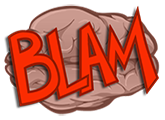Jing Xu
Jing Xu is currently an Assistant Professor of Kinesiology and Neuroscience in the Mary Frances Early College of Education at The University of Georgia.
She is the Director of the Cognition and Dexterity (CoDex) Lab and the Co-director of Neurostimulation Lab at the University of Georgia. Her lab website can be viewed here: http://codexlab.org.
Jing’s research aims to understand how humans learn motor skills and how to restore these skills after neuromuscular injuries. Her lab’s long-term goal is to design effective therapies to help patients regain their motor skills.
She received her Ph.D. (2011) in Psychology at University of California, Berkeley. Her Ph.D. work was done in the laboratories of Cognition and Action, directed by Prof. Richard B. Ivry, and Computational Cognitive Science, directed by Prof. Thomas Griffiths. Her research was focused on human learning and control of movement, and human categorization.
Jing joined the BLAM lab in 2011. During her post-doc work from 2011-2017, she was the lead research fellow of a longitudinal, multi-center project aimed at uncovering the biomarkers of stroke patients’ motor recovery, using multiple advanced neuroscience and clinical assessment methods. Her research has established that the human hand strength and dexterity recovery after stroke are mediated by separate biological systems. In July 2017, she joined the Malone Center to continue working on the hand function and rehabilitation. While working in the BLAM lab, she was an Assistant Research Scientist in the Malone Center of Engineering in Healthcare.
Her primary research interest was to understand how people learn a complex motor skill and how the brain recovers from injury. She used research tools such as behavioral experiments, fMRI, TMS, and computation modeling questions to answer important questions about cognitive-motor representations, learning and control principles, recovery mechanisms after brain injuries, and strategies to enhance motor skills.

